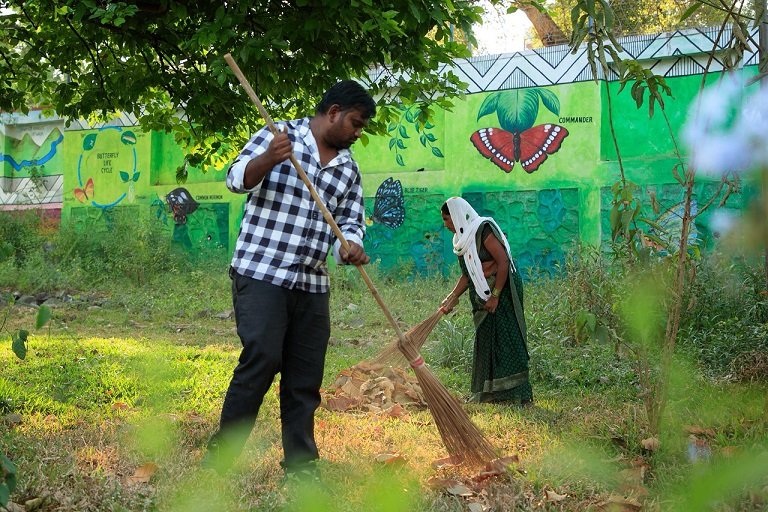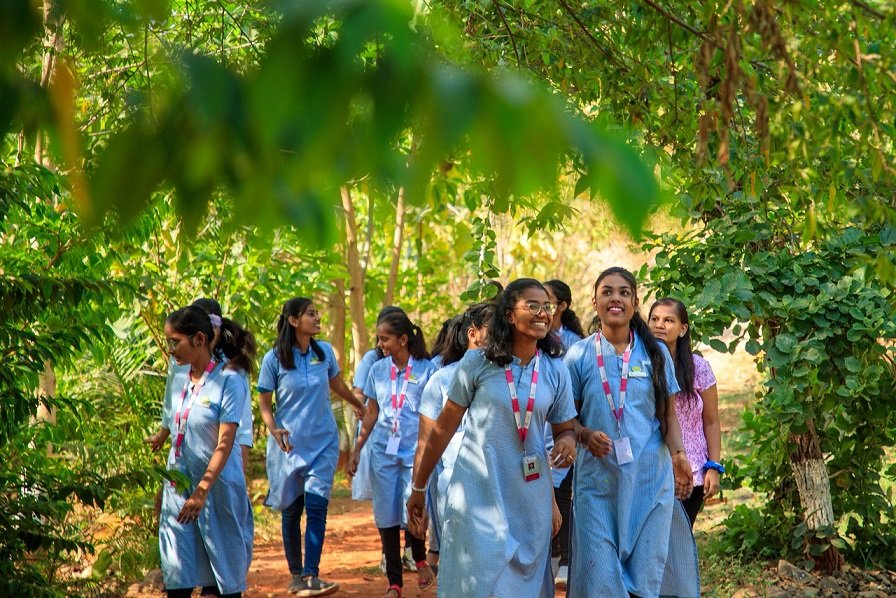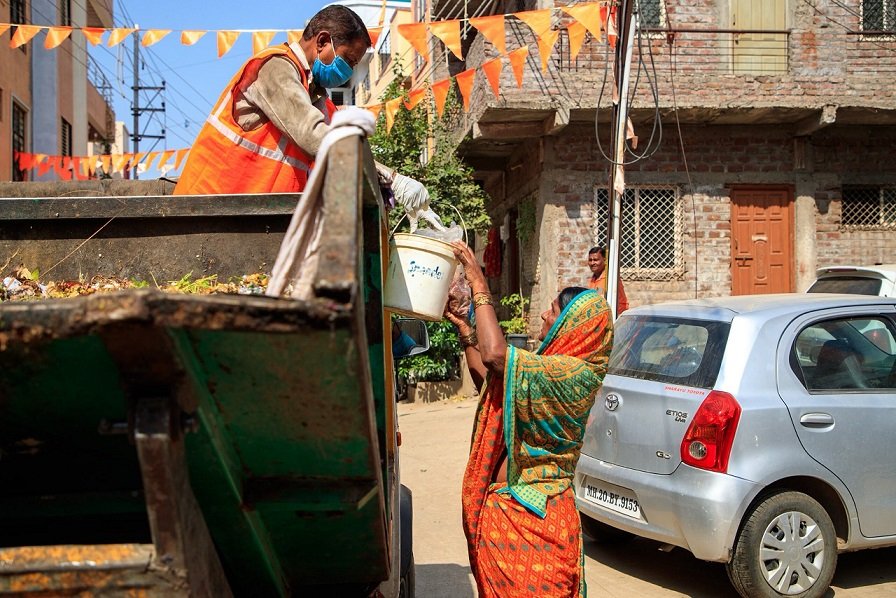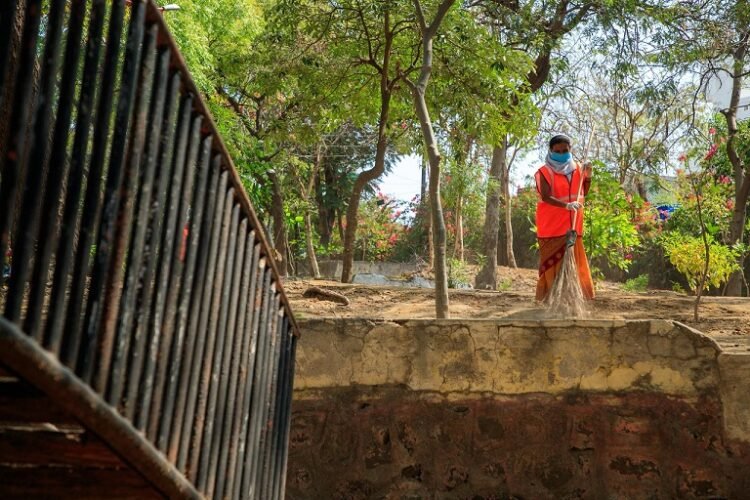WASHINGTON, DC: Today, World Resources Institute (WRI) unveiled five outstanding projects as finalists for the 2023-2024 WRI Ross Center Prize for Cities. This prestigious award recognizes innovative ideas, visionary leaders and transformative projects creating more sustainable and inclusive cities worldwide. Through the Prize, WRI aims to inspire urban change-makers across the globe by elevating trailblazing initiatives and telling impactful stories of sustainable urban transformation.
A total of 200 applicants representing 148 cities and 62 countries responded to this cycle’s call for submissions. Following a year of record-breaking temperatures, WRI selected the theme of “Accelerating Momentum for Climate-Ready Communities,” seeking initiatives addressing the magnitude and urgency of the climate crisis by increasing the speed, scope or scale of action to create inclusive, climate-ready cities.

“Cities are on the frontlines of the climate crisis. They are centers of innovation that have an outsized role in securing a safe, resilient future for billions of people around the world,” said Ani Dasgupta, President & CEO of WRI. “Climate impacts are becoming more frequent, extreme and widespread. We need to find and champion the urban innovators responding to climate challenges with the most effective and creative solutions so that others can learn from them and bring transformation to their own communities.”
This cycle’s Prize submissions reveal a diverse global community committed to creating a climate-ready urban future. “While the projects differ vastly in scale, scope and approach, they underscore that just, equitable and people-centered solutions are already driving profound change. We received an impressive array of submissions but five stood out as exceptional in terms of their demonstrated impacts,” said Jen Shin, Global Lead, WRI Ross Center Prize for Cities.

The finalists are:
- Kham River Restoration Initiative (Chhatrapati Sambhajinagar, India):
EcoSattva, with the Chhatrapati Sambhajinagar Municipal Corporation and Varroc Foundation, is restoring the Kham river, which had become a stream of waste due to sewer leakage and improper solid waste disposal. The project has implemented interventions to build shared public spaces, like community-centered riverfront parks, combined with deep ecological restoration, socially integrated waste management and a city-wide cultural campaign. The result has been a revitalized Kham in Chhatrapati Sambhajinagar (formerly known as Aurangabad) and new cultural ethic around the ecosystem. The project is now influencing similar river management plans throughout the region.

- Rodrigo Bueno, Climate Resilient Housing (Buenos Aires, Argentina):
The Housing Institute of the city of Buenos Aires is collaborating with residents to provide a suite of housing upgrades in the Rodrigo Bueno barrio, an informal neighborhood with poor access to basic city services and rising flood risks. The upgrading project has constructed hundreds of new energy-efficient homes, improved integration with the rest of the city and fostered local entrepreneurship through a participatory, resilience-focused approach that has now been implemented in other neighborhoods too.
- Re-Ciclo (Fortaleza, Brazil):
CITINOVA, by the city of Fortaleza, is boosting recycling rates with a new project that empowers informal waste pickers to conduct door-to-door collection with specially designed electric cargo tricycles. The project has increased social inclusion and economic opportunities for hundreds of people and contributed to the city’s sustainable transportation agenda at the same time. By integrating waste management systems with informal waste worker programs and electric mobility, Fortaleza is boosting its recycling rates while empowering residents and reshaping public perceptions around recycling and cycling.
- Green Community Schoolyards (New York City, United States):
The Trust for Public Land, in partnership with the city of New York, is transforming hundreds of asphalt schoolyards into community green spaces. Green Community Schoolyards revitalize school infrastructure and open these spaces to the broader community. The designs enhance flood resilience through critical green infrastructure and are collaboratively designed by schoolchildren and community members. The project ensures neighborhood green spaces for millions and has inspired similar participatory schoolyard design programs across the United States.

- The Climate Budget (Oslo, Norway):
The Climate Agency of the city of Oslo is pioneering a climate budgeting project that integrates greenhouse gas emissions tracking and reduction into its annual budget cycle. The resulting process, unique for integrating climate considerations across city sectors, is yielding positive impacts on residents’ health and quality of life. The Climate Budget has set a global example as a mechanism for urban climate action and is being replicated by cities around the world.
These outstanding finalists were chosen through a rigorous selection process. Submissions were evaluated and selected based on three broad categories, which submissions demonstrated: large-scale, innovative ideas and novel approaches; life-changing impact on people’s lives, mindsets and behaviors; and ripple effects across and beyond the city. One $250,000-grand prize winner will be selected by an independent world-class jury of leaders in urban affairs, with each of the four runners-up receiving $25,000, and announced at a ceremony in New York City this fall.

“Winners of the WRI Ross Center Prize for Cities serve as powerful examples, illustrating that transformative change is not just a distant dream — it is possible,” said Rogier van den Berg, Global Director, WRI Ross Center for Sustainable Cities. “Each finalist presents thoughtful, time-tested solutions to complex challenges. We applaud them for their outstanding impact, not only in their own cities but beyond.”
Previous grand prize winners include Todos al Parque (“Everyone to the Park”), Barranquilla, Colombia; Food Production for a Resilient Rosario, an urban agriculture project in Argentina; and SARSAI, which creates safer journeys to school for children in Dar es Salaam and other African cities. These grand prize winners and additional Prize finalists exemplify the vision, coalition-building and perseverance that is essential for creating urban transformation in today’s world.







